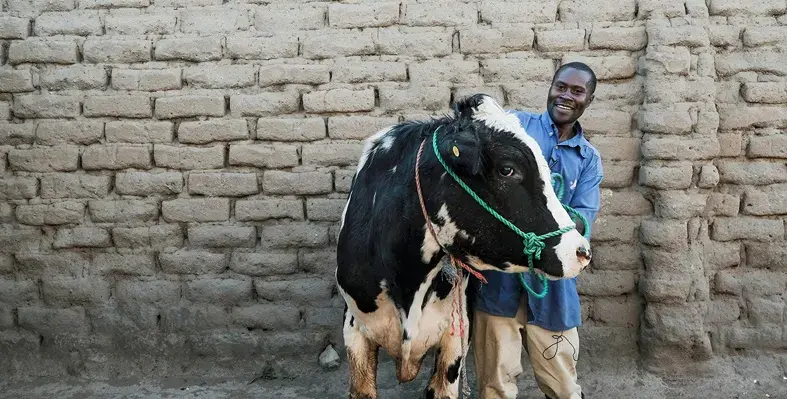According to a recent study published in Nature Genetics, modern breeding technologies and innovations are being tested to improve meat, milk and egg production in Africa
The study highlights the power of collaborative thinking in harnessing advances in genomic technology, digital tools and information and communications technology to establish a foundation for sustainable livestock improvement programmes in Africa.
Through strategic investment and collaboration, African livestock systems can harness tools such as genomic technologies and breeding programmes to drive genetic gains. Supported by the African Animal Breeding Network (AABNet)—a platform of genetics experts, animal breeders, and professionals providing training, advice, and support—these efforts could lead to more resilient, efficient, and sustainable livestock production, strengthening food security and rural livelihoods across the continent, researchers say.
A study titled 'The African Animal Breeding Network as a pathway towards genetic improvement of livestock' was conducted by a team of international researchers led by the Centre for Tropical Livestock Genetics and Health (CTLGH) which explores the potential for genetic gains in African livestock and how AABNet could contribute to transforming livestock production systems. The network enables and facilitates a system of genetic evaluation across multiple African countries, collecting, storing, and sharing livestock data to support the development of higher-quality, more productive animals. It also plays a key role in professional development, educational partnerships, training events, and entrepreneurship, promoting strategic collaborations to accelerate progress. In addition, AABNet connects animal breeders across Africa, enabling them to share information, evaluation systems, and tools to improve productivity and genetic advancements.
"If we design breeding programmes with climate adaptation and mitigation in mind, farmers get access to hardier, more productive livestock—and we build livestock systems that work for both people and the planet," said lead author of the study and director general for the International Livestock Research Institute, professor Appolinaire Djikeng.
These advancements can enhance not only productivity but also climate resilience and sustainability.




